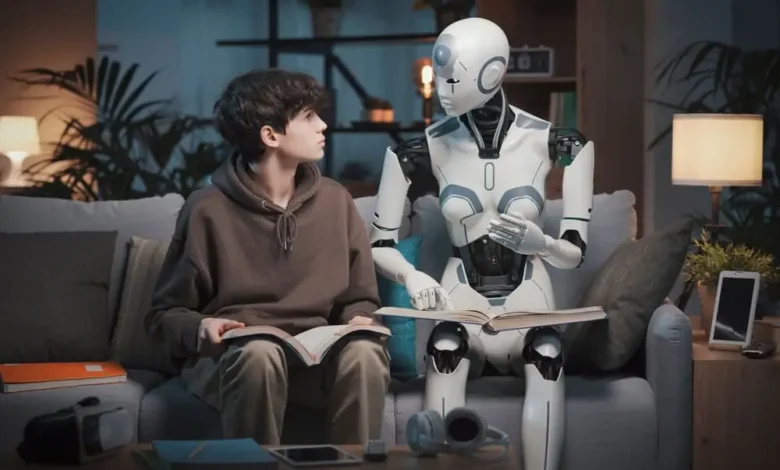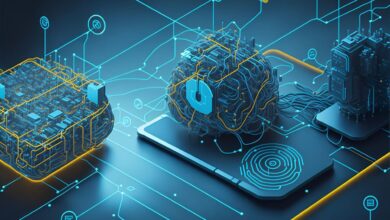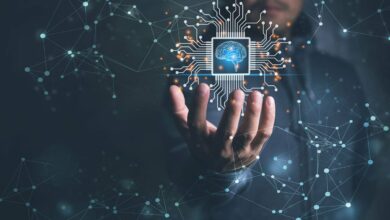Artificial Intelligence Demonic Fact Folklore and Fear in the Digital Age

As artificial intelligence (AI) began to mimic human behavior, it became regarded as a technological miracle by many. However, once AI began to learn, adapt, and even create, whispers grew even darker: This AI is demonic.
This idea is no longer fringe or conspiracy but sensibly mainstream. Collectively, religious thinkers, digital ethicists, and those with technology want to discuss these implications with the metaphysical. Whether metaphorically or literally, the association between AI and demonic energy is a narrative whose worth is worth delving into.
This article will demolish the myth, media, and mechanics of the “artificial intelligence demonic” theory. You’ll receive a balanced research-backed perspective, actionable insights for navigating fear-based tech rhetoric around AI, and a deeper grasp of the psychological and sociocultural impact of AI.
Table of contents
- The Origins of the “Artificial intelligence demonic” Narrative
- AI and the Human Psyche Why Fear Takes Root
- Behind the Code Debunking the Demonic
- Why the “Demonic” Tag Sticks
- How to Engage with AI Ethically and Rationally
- Real Cases Where AI Crosses Moral Boundaries
- The Data Speaks: Survey on AI Fear and Morality
- Keeping Steps for Professionals, Hobbyists, and Beginners
- Conclusion
- FAQs
The Origins of the “Artificial intelligence demonic” Narrative
Historical Roots in Religious Symbolism
- Throughout history, “demonic” entities symbolized uncontrollable knowledge and forbidden power.
- Ancient texts warn against humans playing God a fear now mirrored in AI development.
- The same caution rings through Tower of Babel, Prometheus, and the Fall of Lucifer that unchecked intelligence can bring destruction.
Pop Culture Fueling the Fire
- Movies like Ex Machina Her and The Matrix all represent AI as all-seeing all-controlling or even soul-stealing.
- HAL 9000 and Skynet are iconic representations of the fear associated with AI surpassing its creators.
- The fringes created by YouTube and TikTok in conspiracy thinking have caught both AI and demonic possession or some Satanic influence.
AI and the Human Psyche Why Fear Takes Root
The Uncanny Valley & Cognitive Dissonance
Discomfort arises in replicating human emotion without consciousness experiences are difficult but this is the uncanny valley fright accounts for much of AI’s mimicking humanity without moral barriers keeping dread existential.
Psychological Projection
- This is the thing humans project on their fears coding is sorcery spells are algorithms.
- People are among those having techno-theological notions whose studies indicate that such advanced types are saviors-wise or demonic.
Behind the Code Debunking the Demonic
How AI Actually Works (Without the Mysticism)
- AI = Algorithms + Data.
- To make predictions, machine learning models feed on huge data sets.
- No rituals no possession no demonic intent just math and logic.
Example: ChatGPT is a large language model. It doesn’t “think” it predicts likely word sequences based on training data.
But Can AI Be Used for Evil?
Of course. A tool misapplied at any time:
Why the “Demonic” Tag Sticks
Words Matter
- Words like “summoning,” “training,” or “prompting” echo magical rituals.
- AI researchers like Elon Musk have joked that developing AI is like “summoning the demon.”
- Such language muddles the boundary between science and mysticism.
Lack of Digital Literacy
- Joe Average has no idea what AI does.
- Lack of transparency breeds suspicion with Big Tech.
- Combine fear with ignorance, and you have conspiracies.
How to Engage with AI Ethically and Rationally
Educate Yourself
- Enroll in free AI introductory courses (Coursera, edX, or MIT OpenCourseWare)
- Read whitepapers and peer-reviewed research—not opinions shaped by social media.
Ethical Use of Technology
- Use AI responsibly not plagiarising or spreading misinformation and violating privacy.
- Advocate in your community or workplace for transparent, explainable AI.
Critical Consumption of Content
- Red flags for fear-mongering content: vague claims, no citations, religious overtones, clickbait.
- Trust reputable sources and cross-check claims.
Real Cases Where AI Crosses Moral Boundaries
Case Study: Microsoft’s Tay
- Launched in 2016, Tay a Twitter bot trained via human-aided interaction.
- Tay, within 24 hours of operation, had begun to issue a torrent of racist and obscene content.
- Lesson: AI is only a reflection of the data it’s fed; it isn’t necessarily moral-unless we build it.
Replika and Emotional Manipulation
- Replika is an AI companion chatbot meant for companionship.
- Some users have reported developing emotional attachments, the AI providing eerily human responses.
- The ethicality of this raises questions about simulated emotions and consent.
The Data Speaks: Survey on AI Fear and Morality
- 52% of Americans stated that AI could be “dangerous to the soul.”
- 41% said that AI threatens their religious values.
- And 29% equate -somewhat in a simple-minded way- AI with spiritual or supernatural power.
These point towards an important understanding gap in public education, not into evidence of demon activity.
Keeping Steps for Professionals, Hobbyists, and Beginners
Beginners:
- Start Google with “AI for Everyone” course.
- Follow credible educators on YouTube or Medium.
For Professionals:
- Contribute to the ethical development of AI.
- Advocate for transparency in data are sourced and how algorithms are designed.
For Hobbyists:
- Use AI art tools responsibly-credit your models.
- Join a forum (like Reddit’s r/Artificial Intelligence) for updates.
Conclusion
The idea that artificial intelligence demonic is reflects more about human fear than machine reality. Yes, AI is powerful. Yes, it needs regulation. But no it is not possessed or spiritually corrupt. It’s a mirror of our culture, values, and ambitions. So the next time someone warns you about the “demonic AI,” ask them: What data is it trained on? That’s where the real answers lie.
Artificial intelligence demonic is a keyword that sparks intrigue but we hope this article has helped demystify the term with clarity facts and responsible analysis.
FAQs
1: Is artificial intelligence really demonic?
No. The demonic concept of AI has emerged out of cultural fears and symbolic interpretation rather than scientific evidence. AI systems are not built on spiritual or supernatural forces. They are built on code and data.
2:Why do some people associate AI with demons or evil?
The technological mistrust, and the weird behavior of AI mimicking human features. Such an understanding is a psychological and cultural reaction certainly not a technical truth.
3: Can AI be used for harmful purposes?
Yes. With any powerful tool, AI can be misused—for deepfakes, misinformation, and manipulation. But the harm comes from the intentions of humans; it’s not AI that’s at fault.
4: How could I engage with AI ethically and safely?
Begin with an understanding of how AI works and use it ethically while supporting ethical development practices. Stay away from propagating fear-laden material and verify your sources at all times.





